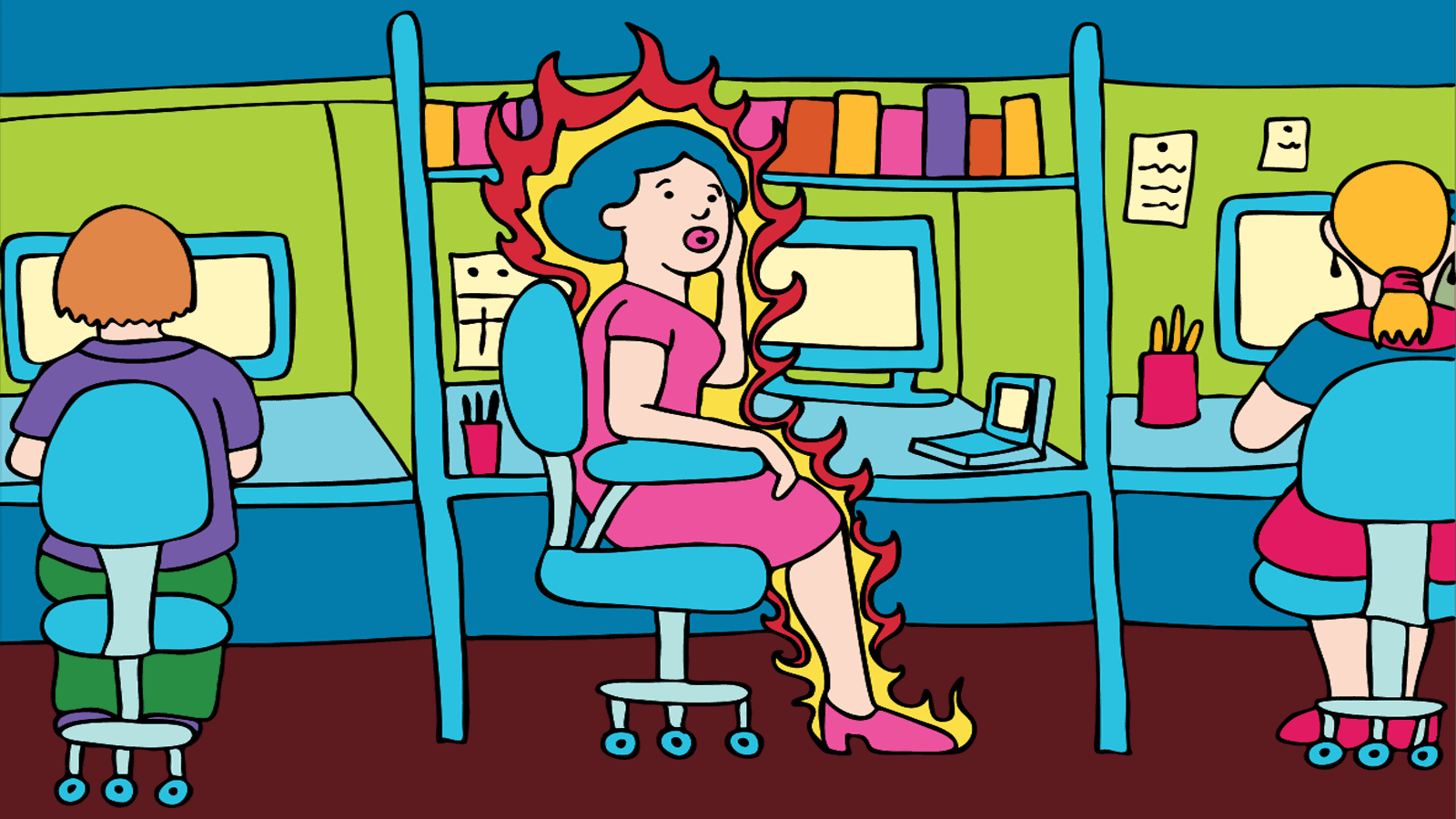If you’re between 40 and 50, you have likely begun noticing menopause symptoms and subtle shifts in your body and moods. Some women will see symptoms sooner while others might have a delayed start. However, one thing is for certain; you can’t escape the big change.
What is Menopause?
This is a natural occurrence in your body. You no longer release eggs and your ovaries no longer produce high levels of the reproductive hormones: estrogen and progesterone. However, despite menopause symptoms, your period must abstain for one year.
15 Things Every Woman Needs to Know About Menopause Symptoms and Treatments
1. Depression, Anxiety, and Remembering You’re Not Alone
Don’t be afraid to talk about your experience with other women, relatives, and your doctor. Therapy and support groups can help by reducing your stress and by giving you a connection to others who are going through a similar experience.
Some menopausal aspects can be difficult to cope with. You have many changes occurring in your body and they can cause mood swings, including depression and anxiety. Don’t ignore them and hope they go away on their own.
2. Hormone Therapy Comes with Risks
Most medical professionals agree that you should address diet, physical activity, and your lifestyle first before trying hormone therapy (HT). HT increases your risk factors for cancer. They can also cause other risks to increase, so you should consult your doctor before trying any HT treatments.
Non-hormone treatments:
• Diet
• Exercise
• Lifestyle changes
• Acupuncture
• Hypnotherapy
• Meditation
• Aromatherapy
• Herbal supplements
• Vitamin therapy
3. You Can Gain Weight
Some weight gain might be due to your lifestyle or age, but menopausal hormone fluctuations can contribute to it too.
Most of this weight will appear around your midsection, which is one marker for increased health risk of type 2 diabetes and heart disease. Following a healthy diet and exercising can reduce the weight gain as well as provide other healthful benefits.
4. Preventive Measures Can Help Lessen Your Symptoms
Diet and exercise are important, but so are preventive measures you might not have considered. While sometimes you can’t prevent a hot flash, you can avoid foods and situations where they can onset or be made worse. Prevention can help mood and vaginal dryness too.
In the bedroom:
• Have your partner increase foreplay
• Use lubricants
For mood swings:
• Be more aware
• Don’t be afraid to walk away from an argument until you’re calmer
• Explain to family, friends, and co-workers, so they can create their own boundaries
5. Changes to Your Gut Health
Estrogen aids your gut in maintaining its healthy state. Because your production declines during the big change, you might find yourself in digestive distress with unexplainable cramps, bloating, diarrhea, constipation, gas, and nausea.
Furthermore, if you’re experiencing anxiety over other symptoms, you might be producing too much cortisol, which works against your natural digestion and causes other issues. Too much cortisol can also cause weight gain.
Alternative treatments, such as a high fiber diet, plenty of water, and exercise can ease your symptoms.
6. Exercise is Important
Even a short daily walk can offer you mood stabilizing and lifting benefits. Exercise also can benefit reduced weight gain, which is a side effect, protection against osteoporosis, and reduced risk of medical conditions.
Low impact exercises and strength training are ideal for strengthening your bones and maintaining muscle tone.
7. Your Moods Might Spiral and Explode
You’re smiling and laughing one moment. The next moment, you’re crying and can’t stop. Anger can be an issue for some women too. Once the dust settles, you might be confused by your own reactions and actions, and you might suffer more stress and anxiety because you’ve hurt someone you love.
Rapid mood shifts are a bane, and hormones generally take the blame. Research suggests that it’s the fluctuating hormones estrogen and progesterone combined with lower production that causes mood swings.
Your moods will affect others in your life whether they’re family, friends, coworkers, or strangers. It’s not as simple as psychiatric and mood disorders that come with triggers. Anything can trigger you at any time.
Taking steps to keep your mood stable is ideal. This includes addressing dietary issues, adding exercise, reducing stress, talking to a therapist, and using herbal, homeopathic, and natural medicines.
In severe cases, your doctor might prescribe an anti-depressant and/or a low dose birth control medication.
8. Bad PMS in Your 20’s and 30’s Might Lead to Worse Symptoms
Most specifically, your shift to perimenopause will be more notable to you if you don’t control and address your PMS symptoms earlier in life. Dr. Christiane Northrup, author of The Wisdom of Menopause Journal and Women’s Bodies Women’s Wisdom, suggests dietary changes you should adopt early on; she claims your symptoms will improve in 30 days.
Dr. Christiane Northrup‘s Proposed Diet:
• No sugar, salt, or white flour
• Reduce caffeine and wine intake
• Consume plenty of omega-3 fatty acids
• Eat low GI carbs, plenty of protein, and fiber
9. Cognitive Therapies Might Treat Hot Flashes Better Than Medications
The North American Menopause Society recommends hypnotherapy and meditation for treating hot flashes. More research is needed, but many people do see benefits from these practices alone or in combination with other treatment options.
A major upside to these alternative therapies is no health risk or adverse reactions.
10. Soy Might Lessen Symptoms
Natural and herbal remedies are like any other medicine: they might not work for every person in every situation. Still, you might see other benefits from soy based foods (tofu, edame, and soymilk) to your diet, including a source of plant protein among others.
Soy does have a bad reputation, and studies have raised some alarm; however, many of the studies aren’t based on dietary soy found in a whole food diet. They’re an injected compound of soy isoflavones. If you have concerns, you can limit your soy intake, but like most foods, you don’t need to shun it.
11. Your Hair Might Thin or Grow in Odd Places
Thinner hair is a common complaint among menopausal women. Again, you can blame your fluctuating hormone levels for the change. As estrogen lowers, androgen rises, which can lead to facial hair growth too.
Remedying hair loss can be difficult, but you can try hair growth stimulating essential oils, scalp massage, or conventional over the counter treatments.
12. Increased Risk of Osteoporosis
Women are naturally at a greater risk for osteoporosis. No method is foolproof, but you can take measures to protect your bone health. Take a high quality vitamin D supplement and make sure to eat whole, nutritious foods. Smoking and excessive alcohol increase bone loss, so quit if you can.
You should speak with your doctor about concerns over bone loss. Your risk increases more if it’s hereditary too. Be sure to discuss preventative options, including medications to slow the progression.
13. Hot Flashes
Hot flashes, cold sweats, and night sweats, which severely disrupt sleep and add stress, are a major pain.
They can occur as early as premenopause, and for you ladies, I’m sorry; research now suggests the earlier you experience symptoms, the longer you’ll have hot flashes. The good news is some doctors believe you’re just more in tune with your body and catch the subtle changes.
They can become so intense that you awaken from a dead sleep. You might be embarrassed if they occur in public or around your family. A hot flash itself can also invoke anxiety as you painstakingly wait for it to pass.
The worst part? Hot flashes can last into post-menopause. One study found 14 years was the average.
Prevent hot flashes:
• Avoid spicy foods and caffeine
• Dress in light layers
• Reduce temperatures with thermostat, windows, and fans
14. Or You Might Not Have Hot Flashes … or Any Major Symptoms
Hot flashes are a predominant symptom, but women can transition into post-menopause without ever experiencing one. The same applies to other menopause symptoms.
How did these women become so lucky? It’s conjecture since many factors are playing out, such as actual hormone levels, diet, exercise, lifestyle, and possibly genetics. Discovering this link might lead to better symptom management.
15. You Can No Longer Have Children
This can be an emotional subject and transition for women to face. Others are happy to throw out their birth control. There is no wrong reaction.
Whether you thought you had more time to have children or you’ve filled your house with kids over the years, you might feel sudden, intense sadness over losing your ability to give life.
Women who still want children have options, and they should speak with their doctor to pursue medical options available. Adoption and surrogacy are also options that allow women beyond childbearing age to start a family or open their hearts and homes to children.
Final Thoughts About Menopause Symptoms and Treatments
Low estrogen is responsible for most menopause symptoms and increased risks of heart disease, type 2 diabetes, and osteoporosis. Short term HT can help in the worst cases, but doctor’s don’t recommend long term use.
For some women, the big change is a joyful experience. No more birth control or periods. For others, it is nothing short of a nightmare that makes you wish for monthly periods again. Some women might experience no symptoms at all.
There is no right or wrong way to go through the change. Keeping yourself comfortable and healthy matters the most. Take steps to prevent symptoms when you can, and be ready to confront them when you can’t.
If you need assistance managing your menopause symptoms, talk to your doctor and explore your options. Address your diet, exercise, and lifestyle to see if you can make any changes yourself too.
Just remember, the change is a temporary unpleasant fact of being a woman. You’ll make it through, and you’ll be stronger for the journey ahead.














 Community
Community

